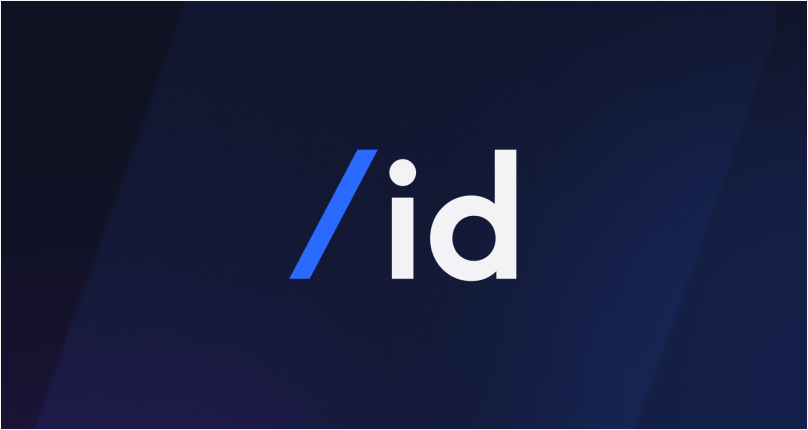Introduction
Using IdP groups to make authorization decisions is very common among organizations. For example, Figma wrote a custom application gateway to protect internal web applications using the IdP groups to drive RBAC.
Whether you are using Gate to make authorization decisions and protect applications, or adopting a different approach, SlashID allows you to retrieve Google Groups for a given user when the user authenticates.
Google doesn’t provide a way to retrieve a user group when a user authenticates via SSO. To overcome this, we use the Google Admin SDK to retrieve the groups the user belongs to. When the user authenticates through SSO with SlashID, the user token will include a structure similar to the following where the oidc_groups are contained:
google: {
"access_token": "xIh3qoOXAFTaiOma2ZS6eCgP7rJF6iNDzleux+t69h8XktpsbHDKpiuwH2SwDO5/pSfwwn1+GeYZjxYxGbcJHAfiTztUfz3XqiejND4NasfuCGs550d0YSruxuC5yeKN9GUBbap1t/El7db23GlzjdJodp85ZFJsYsF9NTvP7ws4LkaX64s4VvlVWVT4fxOctFjO3oE1iR/oOBD1QCawvPdrLomQYFcXzN0R1UY9mIlDtUvsXh9cT+gAT9vXdjZ+Q9hR/b2QVR/l241AzmZ4VeIbVPQ=",
"client_id": "32189023109-4332109.apps.googleusercontent.com",
"expires_at": 1673092551,
"id_token": "lVddu2HJAGO/VEnyh30vEeYTH169x2r+/X2/kImNUNeyt6lpDJaJMF7TwSDwmTdAf4Sxs6Ul5eTCrIfHk73F8Ec7WUa/bjekZoj7Ee/xPYNmZpjGuTNpcQCwl+MfEbdd
zXPPFoCdZF+CcZxldSOwzLUDYcLgXZ8fpBMg2erIMtqaH5e682GwY7iJD4ySUeTj3JftxQYBYizUUPfueNkbgsh+bC1bUtzMHDjVU53kZFvygjYydThtw8gl7Kw5G3NW
6f9Ch/D/9WnFbyb/Q3eibJeIKnMNrow003l70DefZzRLM2/6mkEd/VEMuGo9ejW2An2zf/vVQSKyxXP6ySNSkU/nrTtkGFS0s/ENsCB6taj12i57JOtzgDiigJayXB8N
KKgWtJmT/ESgLxsH54Mg3AYK91wo53jmfo9ZLPn88muczG96GfAzUMAOM5Drl/MKyPP+WZ+zwJ1gnoRqnxIUrv+WDwkwbbvA2vjkW8Op+gXVkactQCQVQ26GBGDPh7MtbTUSsW6LKb8/3oEMBuSIZQ==",
"oidc_groups": [
"test-group@slashid.dev",
"sso-guide@slashid.dev",
],
"provider": "google",
"refresh_token": ""
}Configuring SlashID to retrieve Google groups is a simple four step process:
- Configure the Google credentials
- Register the credentials with SlashID
- Add the credentials to your SlashID organization’s OIDC configuration
- Pass
requires_groupsto the authentication calls
Configuring SlashID to retrieve groups
To retrieve Google groups, we need to create a service account with the https://www.googleapis.com/auth/admin.directory.group.readonly scope. Our developer guide has step by step instructions on how to configure your Google organization.
Once the account is created and you obtain the JSON credentials from GCP, we are ready to configure SlashID to use them. The first step is to add a super_user field to the end of the JSON object with the email address of a super-admin for the Google account. For example:
{
"type": "service_account",
"project_id": "your-project-id",
"private_key_id": "8167c485286f057e06e4a9d17e99ab4913627dbd",
"private_key": "-----BEGIN PRIVATE KEY-----\nMIIEvgIBADANBgkqhkiG9w0BAQEFAASCBKgwggSkAgEAAoIBAQCiaBGNydTgs0WV\numdNqzt5FlqigilYVk4J2oQqimg6Cnf8Q27ChShgDzUfwMbImm65MRFWD8UbiVGs\nZ9Q36bK53HKPgi07sZtdxuuwx2/CZ24l1q1N3Dpv5pfYzm2Z24pJbzWIF1pvDnmp\nZLA0iEXCnvOUIZ2tZ1sYmC7KH1MAbip7LNa6pJ/3fA1dRW7NWvporqFZCaGNsGwM\n0vNtS6dEwayhh8IFh2tCSARXOP62ji3BppTUItqBoh3mqP5L7iTv9iXTKTcTXb9E\nm5U1Espzc//UbElWashstYksTZYa6yrD7p2Zns2T4xRASL7j33dT5uHzIkvfeRdu\nyPj09W9TAgMBAAECggEASBj3IgDl1lL/oza7QYmwv1KjLd2mySaXQlyVq+UB3DJl\njcHJ2+UNRYe6x7vnA4s7eE9GKPSbRlwxu93kImZHB6fL29WoiwWPuZPjcfk3rhAI\noBernBMWhjLSWldZ5KHHxE3wb9geN4svi3m9l7Sfc4TpEWvS+fYWRNbafrRlPpz0\nQoFDSQy9FqxB7tGhs7insl+N16C8eQyjaysQt/xvk7pUQO6tYpVU1RVKIZlzjesU\nvOx2NfZSktILhB4teFYRQbGU0trPDfXOfj/NEQ1TUrL0gARHjYjalyrPgk2DNzXH\nCEx6ImQEKHLiJ9YeOGWvCkMBOb66kstlSwm6PxDf4QKBgQDXbvFKFmco970Yqg79\nuwJkOA29Wtqz+J9RnQd9WGL2wbFk/NCpqDnmbNM7UQm6nS9fhNkNG2BbBbW1gaYG\n+5sQ6X69ctxSVvfBqeFwwSdDqz6VReyGeQO7pNT51Ze4cW7O3BIKEoxicAgrw5uR\nAIUvHKs+UYtipAt0Y/I5GMdbSQKBgQDA/PGsnVdnPHuaPHbdJcDuXXmglOf9Nhj3\nK/eiMOE7UxeHy4vNDQyNPfhtGe7zyWqbshV2Gi2l9gyOfjt+sRDFpTG27i4Cc9Du\nNJ7EBnBIkoyswJOUmdt6YbmuAKEELZGQB9v94hIPzTpa51qbuyjNFQWVDaj2xPC5\nfmWVCW65uwKBgQDCb0ns0Q1oJzgOo6WGERuWchTMesx6tACuuygAVB51kNlXSOnW\nxZMESeHXXkuGlskjz5XKQ5QScrPOTmYXVUxd1i9iMuFwmzdfHcDvcBTM+Sgxt3tC\n3sOkvp7NoZ4ehJo6rtrFJnp3eZ+WSCQGmc6ad6iCRTyk2WPRN0dtitSaqQKBgENi\nTnQqABGw4auJ/yraetH/228BbztPf0oWlQGRtaMEMUwd+zNeogpTIAHgMzn2Ev5I\nIQw6ucOf9ORwGQ/0fVm1g3VPFsuOat4xi1oAsYX1fZ74Is+ZJTRHGREzcQVHb/Lt\ne5fbLtlLnFuPOmjz4ZwyAd/4hA2d2Du8cXWndHzvAoGBAJyuL43KBer234fD9Giu\nw+1/PR26rSO0rdKLihE2zRn4l/Kv+/UTZxGSLqpNZpGYnxJ0hAJ7J6N5yFFWZwBp\nvPB5yHmzkMVEYjWgNPzt4WjR3AroYJVzykNEPjdKcBCAM9GA+46W5KbBXbfWavE+\namtNmCJjuaiHJJjydyrTSUVB\n-----END PRIVATE KEY-----\n",
"client_email": "groups-retrieval-guide@your-project-id.iam.gserviceaccount.com",
"client_id": "104092906165806390865",
"auth_uri": "https://accounts.google.com/o/oauth2/auth",
"token_uri": "https://oauth2.googleapis.com/token",
"auth_provider_x509_cert_url": "https://www.googleapis.com/oauth2/v1/certs",
"client_x509_cert_url": "https://www.googleapis.com/robot/v1/metadata/x509/groups-retrieval-guide%40your-project-id.iam.gserviceaccount.com",
"super_user": "user@slashid.dev"
}With that done, we can add the credentials to SlashID through our external credentials API as shown below.
curl -L -X POST 'https://api.sandbox.slashid.com/organizations/config/external-credentials' \
-H 'Content-Type: application/json' \
-H 'Accept: application/json' \
-H 'SlashID-OrgID: <YOUR ORG ID>' \
-H 'SlashID-API-Key: <YOUR API KEY>' \
--data-raw '{
"extcred_provider": "google",
"extcred_type": "json_credentials",
"extcred_label": "group retrieval credential"
"json_blob": {
"type": "service_account",
"project_id": "your-project-id",
"private_key_id": "8167c485286f057e06e4a9d17e99ab4913627dbd",
"private_key": "-----BEGIN PRIVATE KEY-----\nMIIEvgIBADANBgkqhkiG9w0BAQEFAASCBKgwggSkAgEAAoIBAQCiaBGNydTgs0WV\numdNqzt5FlqigilYVk4J2oQqimg6Cnf8Q27ChShgDzUfwMbImm65MRFWD8UbiVGs\nZ9Q36bK53HKPgi07sZtdxuuwx2/CZ24l1q1N3Dpv5pfYzm2Z24pJbzWIF1pvDnmp\nZLA0iEXCnvOUIZ2tZ1sYmC7KH1MAbip7LNa6pJ/3fA1dRW7NWvporqFZCaGNsGwM\n0vNtS6dEwayhh8IFh2tCSARXOP62ji3BppTUItqBoh3mqP5L7iTv9iXTKTcTXb9E\nm5U1Espzc//UbElWashstYksTZYa6yrD7p2Zns2T4xRASL7j33dT5uHzIkvfeRdu\nyPj09W9TAgMBAAECggEASBj3IgDl1lL/oza7QYmwv1KjLd2mySaXQlyVq+UB3DJl\njcHJ2+UNRYe6x7vnA4s7eE9GKPSbRlwxu93kImZHB6fL29WoiwWPuZPjcfk3rhAI\noBernBMWhjLSWldZ5KHHxE3wb9geN4svi3m9l7Sfc4TpEWvS+fYWRNbafrRlPpz0\nQoFDSQy9FqxB7tGhs7insl+N16C8eQyjaysQt/xvk7pUQO6tYpVU1RVKIZlzjesU\nvOx2NfZSktILhB4teFYRQbGU0trPDfXOfj/NEQ1TUrL0gARHjYjalyrPgk2DNzXH\nCEx6ImQEKHLiJ9YeOGWvCkMBOb66kstlSwm6PxDf4QKBgQDXbvFKFmco970Yqg79\nuwJkOA29Wtqz+J9RnQd9WGL2wbFk/NCpqDnmbNM7UQm6nS9fhNkNG2BbBbW1gaYG\n+5sQ6X69ctxSVvfBqeFwwSdDqz6VReyGeQO7pNT51Ze4cW7O3BIKEoxicAgrw5uR\nAIUvHKs+UYtipAt0Y/I5GMdbSQKBgQDA/PGsnVdnPHuaPHbdJcDuXXmglOf9Nhj3\nK/eiMOE7UxeHy4vNDQyNPfhtGe7zyWqbshV2Gi2l9gyOfjt+sRDFpTG27i4Cc9Du\nNJ7EBnBIkoyswJOUmdt6YbmuAKEELZGQB9v94hIPzTpa51qbuyjNFQWVDaj2xPC5\nfmWVCW65uwKBgQDCb0ns0Q1oJzgOo6WGERuWchTMesx6tACuuygAVB51kNlXSOnW\nxZMESeHXXkuGlskjz5XKQ5QScrPOTmYXVUxd1i9iMuFwmzdfHcDvcBTM+Sgxt3tC\n3sOkvp7NoZ4ehJo6rtrFJnp3eZ+WSCQGmc6ad6iCRTyk2WPRN0dtitSaqQKBgENi\nTnQqABGw4auJ/yraetH/228BbztPf0oWlQGRtaMEMUwd+zNeogpTIAHgMzn2Ev5I\nIQw6ucOf9ORwGQ/0fVm1g3VPFsuOat4xi1oAsYX1fZ74Is+ZJTRHGREzcQVHb/Lt\ne5fbLtlLnFuPOmjz4ZwyAd/4hA2d2Du8cXWndHzvAoGBAJyuL43KBer234fD9Giu\nw+1/PR26rSO0rdKLihE2zRn4l/Kv+/UTZxGSLqpNZpGYnxJ0hAJ7J6N5yFFWZwBp\nvPB5yHmzkMVEYjWgNPzt4WjR3AroYJVzykNEPjdKcBCAM9GA+46W5KbBXbfWavE+\namtNmCJjuaiHJJjydyrTSUVB\n-----END PRIVATE KEY-----\n",
"client_email": "groups-retrieval-guide@your-project-id.iam.gserviceaccount.com",
"client_id": "104092906165806390865",
"auth_uri": "https://accounts.google.com/o/oauth2/auth",
"token_uri": "https://oauth2.googleapis.com/token",
"auth_provider_x509_cert_url": "https://www.googleapis.com/oauth2/v1/certs",
"client_x509_cert_url": "https://www.googleapis.com/robot/v1/metadata/x509/groups-retrieval-guide%40your-project-id.iam.gserviceaccount.com",
"super_user": "user@slashid.dev"
}
}'The credentials are encrypted using envelope encryption backed by an HSM to keep key material safe.
Configuring OAuth2 credentials
As described in our guide to setup SSO with SlashID, once you obtain a client_id and client_secret for Google you can pass an extra parameter to the API called external_cred which references the service account credentials we created in the previous step.
curl --location --request POST 'https://api.sandbox.slashid.com/organizations/sso/oidc/provider-credentials' \
--header 'SlashID-OrgID: <YOUR ORG ID>' \
--header 'SlashID-API-Key: <YOUR API KEY>' \
--header 'Content-Type: application/json' \
--data-raw '{
"client_id": "<CLIENT ID>",
"client_secret": "<CLIENT SECRET>",
"provider": "google",
"label": "A label for this set of credentials"
"external_cred": <EXTERNAL_CRED_ID>
}
'Putting it all together
Now that we have the necessary pieces in place, you can use the requires_groups parameter in your authentication requests. For example:
let user = await sid.id(oid, null, {
method: 'oidc',
options: {
client_id: clientId,
provider: provider,
ux_mode: uxMode,
requires_groups: 'true',
},
})The call above will retrieve the Google groups for the user logging in and return them as part of the OIDC token in user.decodedTokenContainer.oidc_tokens.
You are now ready to start using /id to retrieve Google Groups as part of the SSO sign-in flow.






